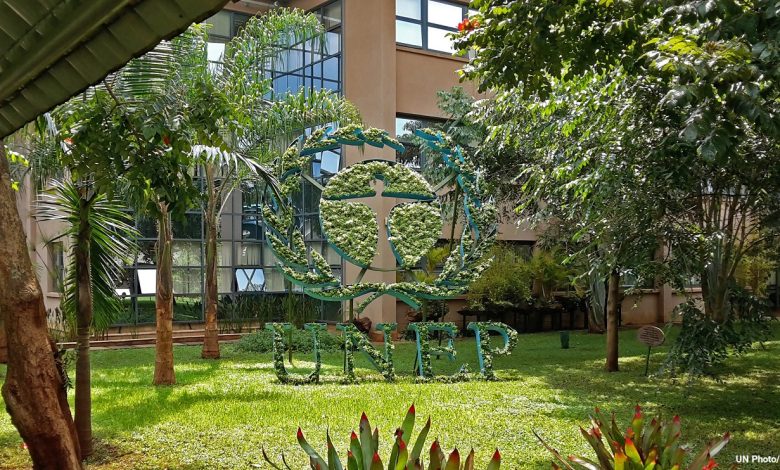Marine Environment Management Planning Specialist at United Nations Environment Programme – Nairobi, Kenya

Description
The United Nations Environment Programme (UN Environment) is the leading global environmental authority that sets the world’s environmental agenda, promotes the coherent implementation of the environmental dimension of sustainable development within the United Nations system and serves as an authoritative advocate for the environment.
Purpose and Objectives
The objective of consultancy is to provide technical services and to engage stakeholders in marine spatial planning and related management plans.
The consultancy will involve the development of participatory and evidence-based marine spatial planning and the development of a comprehensive stakeholder validated integrated environmental management plan for communities of Area 3 of the Pemba Channel Marine Conservation Area.
Duties And Responsibilities
Under the general supervision of the Head of the Secretariat of the Nairobi Convention, and direct supervision of the project manager the Consultant will undertake, using Geographic Information Systems (GIS) the mapping of PECCA, and the detailed mapping of Area 3 by identifying the various marine uses, overlaps and possible use conflicts, and validation of the marine use maps by stakeholders.
Specifically the consultant will undertake the following activities:
Using GIS tools develop a detailed interactive atlas with maps of PECCA showing:
Physical and oceanographic data
Pemba archipelago and the existing management zones, elevation, ocean floor features, continent shelf extent, ocean depth.
Pemba currents and water movements, eddies, tides and stratification in the PECCA, temperature, sea surface temperature change, sea level and wave data, wind and atmospheric data, ocean currents, salinity and ocean chemistry and change trends, coastal and offshore upwelling, oceanographic modelling (for ocean circulation, water mass formation, and the transport of pollutants and marine organisms).
The Ecological and biological data (Biodiversity)
Atlas showing areas and extent of high ecological value critical habitats (coral reefs, beaches, dunes, seagrass, mangroves, coastal forests), detailed marine protected areas – PECCA, locally managed marine areas, lagoons, bays, large shallow inlets, sandbanks.
Atlas showing fish and invertebrate species abundance, distribution, and primary productivity (of endemic, exotic, flagship, indicator, keystone, habitat forming, target or vulnerable species), chlorophyll concentration and chlorophyll movements (near real time), migratory species corridor (e.g. for whales, sharks, and sea turtles)
Map showing fish nursery areas, suitability of areas for critical habitats restoration, for aquaculture, fishing area, no-take areas and co-managed marine parks, seaweed farming areas, fish closure areas including seasonal closures areas (for octopus, sea cucumber, mangrove crabs).
Health status of natural capital
Hotspots of overfishing and declines in fish stocks.
Pollution hotspots from land-based sources wastewater, sedimentation, marine litter and plastics.
Hotspots of habitat degradation and physical alteration.
Model climate change in terms of temperature rise, ocean acidification, sea level rise.
Human use
Human population and distribution, plot and map all residential rural/urban areas.
Coastal development (ports/harbours, marinas, harbours, energy installations) and other infrastructure e.g. roads, railway, airport).
Socioeconomic activities (fishing (near shore fishing – abundance of fishing boats, fish landing sites, amounts of targeted species, data on the fish size, catch rates types of fishing gear), offshore fishing, foreign vessels fishing areas, aquaculture, tourism (hotel and catering – popular destination for tourism, tourist hotels, and data on volume of visitors), and alternative livelihoods –carbon credits sites, seaweed farming, sea cucumber marketing, shrimps/octopus fishery, oyster cultivation, crabs fishing areas and light industries.
Shipping traffic and cargo volume at ports and harbours, if any.
Data on the size and productivity of oil and gas exploration, mining, sand, and gravel extraction, dredging, dumping sites.
Marine cables, pipelines, jetty, cultural and religious sites.
Manipulate data to enhance visualization and data interpretation to
build solutions for community-based initiatives such as marine ecosystem protection, integrated coastal zone management, and ocean economy sustainability.
Enable community participation in marine spatial planning in Area 3 of PECCA to inform policy decisions.
to detect variability such as differences in terrain, elevation, land cover, and visibility to inform the best sites for property development, wildlife habitats, conservation areas, utility corridors etc.
detect change, resource/space use conflicts using imagery to support inspections, compliance, damage assessment and evaluating the environmental impact of planned projects and connectivity between areas such as MPAs.
Adhere to industry and community-established data standards, including data formats, web-services standards, metadata, interoperability of data and services, use of open-source technologies to enables users to integrate spatial data and the geodatabase into any web, mobile, or computing application for open access to the public.
Participate in open stakeholder meetings facilitated by the Department of Environment and Department of Marine Conservation and partners for a participatory approach and validation of Area 3 maps and atlas.
Requirements
Qualifications/special Skills:
- Advanced university degree (MSc or PhD) is required in the field of Geographic Information Systems, Ecology, Environmental studies, Marine science, coastal ecosystems management, or any related discipline.
- A minimum of 7 years of professional experience is required in developing and/or implementing programmes on coastal ecosystems conservation, natural resources management.
- Working knowledge in Tanzania and experience of working with Government and intergovernmental programme would be preferred.
- Experience working in a multidisciplinary set up with government, non-government stakeholders including local communities on natural resource management matters in the Western Indian Ocean region is desired.
- Demonstrated knowledge and experience on remote sensing, obtaining biological, geophysical and socioeconomic geospatial datasets and developing geospatial databases is desired
Experience and knowledge in the application of geographic information systems (e.g. ArcGIS), information management and in preparation and delivery of presentations. Working experience with coastal communities Tanzania is required.
Languages
- English and French are the official working languages of the United Nations. For this position fluency in both oral and written English is required. Knowledge of spoken and written coastal dialect of Kiswahili required.